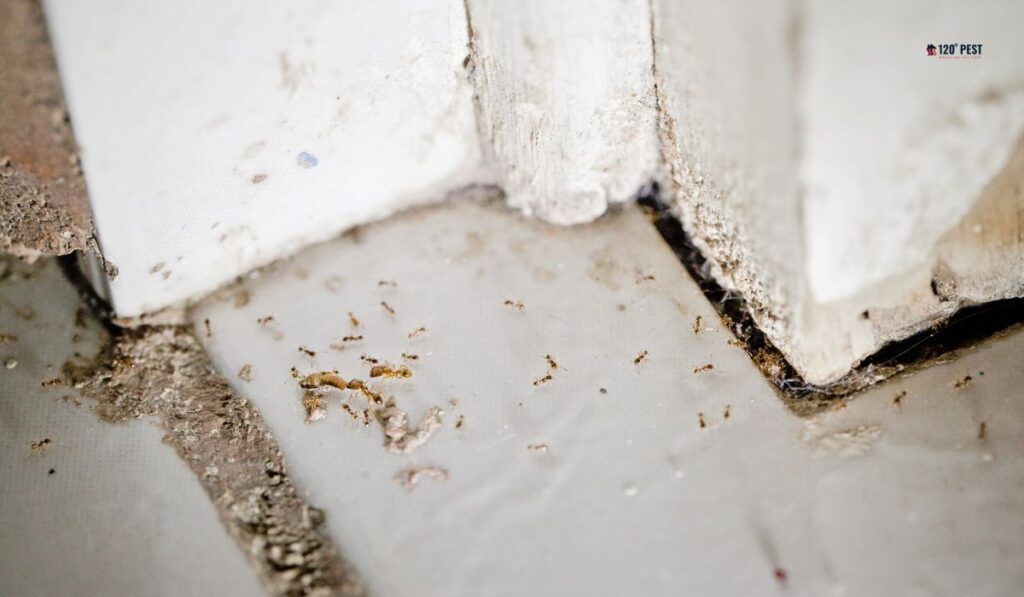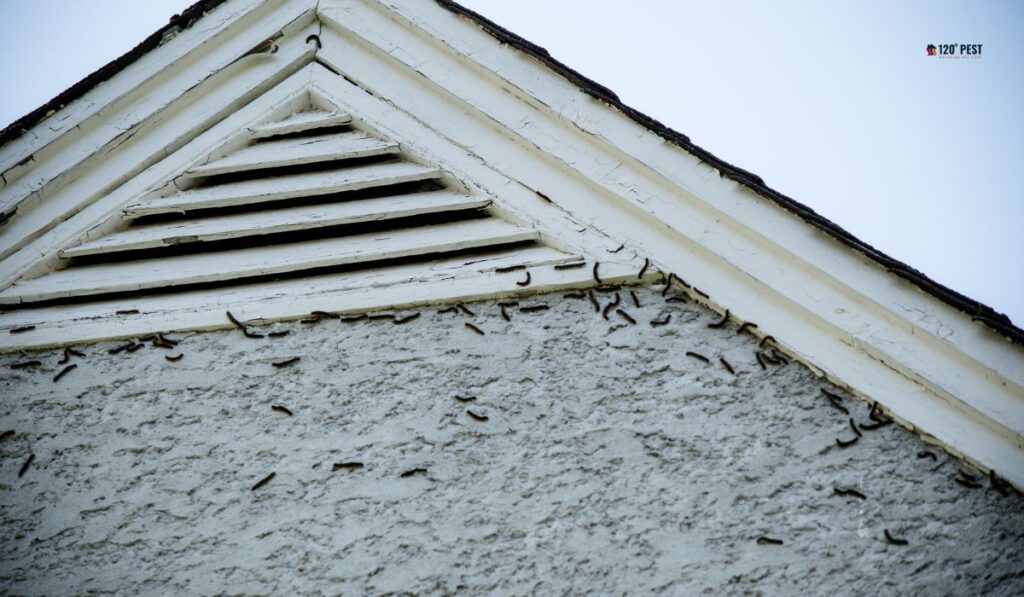Preventing recurring pest infestations in your home is not only crucial for the well-being of your family but also for maintaining the structural integrity of your property.
By implementing a comprehensive set of preventive measures, you can safeguard your home against various pests, ensuring a comfortable and pest-free living environment.
The Impact of Pest Infestations on Homeowners
Pest infestations can have severe consequences, ranging from health issues to property damage.
Understanding the implications of pests infiltrating your home is the first step toward effective prevention.
Importance of Preventive Measures
Proactive measures play a key role in keeping pests at bay.
Instead of dealing with infestations reactively, homeowners can adopt preventive strategies to mitigate the risk of recurring pest problems.
Understanding Pest Behavior
Common Pests and Their Habits
Rodents
Rodents, such as mice and rats, are attracted to food sources and warmth. Identifying their habits helps in targeting areas where they are likely to nest.
Insects
Different insects exhibit varied behaviors.
Understanding their habits helps homeowners implement targeted prevention methods suitable for specific pests.
Termites
Termites thrive on wood and cellulose materials.
Recognizing their behavior is crucial for preventing structural damage.
Seasonal Variations in Pest Activity
Pest activity often varies with seasons.
Being aware of these fluctuations allows homeowners to adjust their preventive measures accordingly.
Identifying Vulnerable Areas
Entry Points
Cracks and Gaps

Small openings in your home serve as entry points for pests.
Identifying and sealing these gaps is fundamental to preventing infestations.
Windows and Doors
Improperly sealed windows and doors are common entry points.
Regular checks and repairs are essential for pest-proofing.
Hiding Spots
Attics and Basements
Dark and secluded spaces are attractive to pests.
Regular inspections and cleaning can eliminate potential hiding spots.
Cluttered Spaces
Piles of clutter provide hiding spots for pests.
Decluttering your living spaces minimizes the risk of infestations.
Regular Cleaning and Maintenance
Importance of a Clean Environment
Removing Food Sources
A clean and well-maintained kitchen reduces the attraction for pests searching for food.
Proper Waste Management
Effective waste disposal prevents pests from finding shelter and sustenance in your home.
Routine Inspection and Repairs
Fixing Leaks and Damp Areas
Damp areas attract pests.
Fixing leaks and ensuring proper ventilation safeguards against moisture-related infestations.
Repairing Damaged Screens
Intact window and door screens act as barriers, preventing pests from entering your home.
Regular repairs are necessary for their effectiveness.
Natural Repellents and Deterrents
Plants That Repel Pests
Mint
Planting mint around your home acts as a natural deterrent against pests like ants and spiders.
Lavender
Lavender not only adds fragrance but also repels moths and mosquitoes.
Essential Oils as Pest Deterrents
Citrus Oils
Citrus oils, such as lemon and orange, can be used as natural insect repellents.
Eucalyptus Oil
Eucalyptus oil is effective in deterring spiders and other arachnids.
Pest-Resistant Home Construction
Pest-Resistant Materials
Treated Wood
Using treated wood in construction minimizes the risk of termite infestations.
Metal
Metal structures are less susceptible to pest damage compared to wood.
Professional Pest-Proofing Services
Hiring professionals for pest-proofing ensures a thorough and effective barrier against potential infestations.
Proper Waste Disposal
Impact of Improper Waste Disposal on Pest Infestations
Accumulated waste attracts pests, leading to increased infestation risks.
Guidelines for Effective Waste Management
Adhering to proper waste disposal guidelines prevents pest attraction and breeding.
Securing Food Storage
Importance of Proper Food Storage
Airtight Containers
Storing food in airtight containers prevents access and contamination by pests.
Refrigeration Practices
Refrigerating perishable items promptly minimizes the risk of attracting pests.
Cleaning Kitchen Appliances Regularly
Regular cleaning of kitchen appliances eliminates food residues that attract pests.
Pest-Proofing the Garden
Organic Pest Control in the Garden
Beneficial Insects
Encouraging beneficial insects in your garden helps control harmful pests.
Companion Planting
Strategically planting companion plants deters pests and promotes garden health.
Proper Yard Maintenance
Trimming bushes and removing standing water in the yard reduces hiding spots and breeding grounds for pests.
Implementing Pest-Control Devices
Electronic Pest Repellents
Electronic devices emit signals that deter pests without harmful chemicals.
Ultrasonic Pest Control Devices
Ultrasonic devices disrupt pest communication and feeding patterns, preventing infestations.
Traps and Baits
Strategically placing traps and baits controls pest populations without widespread chemical use.
Seeking Professional Pest Control
Regular Pest Inspections
Scheduled pest inspections by professionals catch early signs of infestations.
Hiring Certified Pest Control Services
Certified pest control services offer tailored solutions for specific pest issues.
Educating Family Members
Importance of Pest Awareness
Educating family members about pests and prevention measures fosters a collective effort.
Involving Family in Prevention Measures
Incorporating family members in routine inspections and maintenance activities enhances the effectiveness of prevention strategies.
Emergency Response Plan
Steps to Take During an Infestation
Evacuation Procedures
Establishing evacuation procedures ensures the safety of your family during severe infestations.
Contacting Professional Help
Having contact details of professional pest control services streamlines emergency responses.
Monitoring Pest Activity
Keeping Pest Logs
Maintaining a log of pest activities aids in identifying patterns and addressing vulnerabilities.
Noticing Early Signs of Infestation
Recognizing early signs allows for swift action, preventing the escalation of pest problems.
Staying Informed about Pest Trends
Changes in Pest Behavior
Remaining updated on changes in pest behavior helps in adapting preventive measures accordingly.
Emerging Pest Threats
Awareness of new and emerging pests enables proactive prevention against potential infestations.
Sustainable Pest Control Methods
Environmentally Friendly Pest Control Products
Diatomaceous Earth
A natural and non-toxic substance effective against a variety of pests.
Neem Oil
Neem oil acts as a biopesticide, targeting pests while being safe for the environment.
Implementing Integrated Pest Management (IPM) Strategies
IPM combines multiple strategies, emphasizing prevention and minimizing environmental impact.
Community Involvement
Neighborhood Pest Control Initiatives
Collaborative efforts within the community enhance overall pest control effectiveness.
Sharing Preventive Measures with Neighbors
Sharing knowledge and preventive measures with neighbors creates a collective defense against pests.
Pest-Proofing Your Pets
Importance of Pet Hygiene

Maintaining cleanliness and health in pets reduces the risk of pest transmission.
Regular Vet Checkups for Flea and Tick Prevention
Routine veterinary checkups and preventive treatments protect pets from common pests.
Assessing and Adapting Prevention Strategies
Regularly Updating Pest Prevention Plans
Periodic reviews and updates to prevention plans ensure relevance and effectiveness.
Adapting Strategies Based on Previous Infestations
Learning from past infestations allows homeowners to refine and adapt preventive measures.
Conclusion
In conclusion, preventing recurring pest infestations involves a proactive approach.
Understanding pest behavior, securing vulnerable areas, and implementing preventive measures are crucial.
Regular cleaning, natural repellents, and pest-resistant construction materials add layers of protection.
Additionally, proper waste disposal, secure food storage, and vigilant garden maintenance contribute to a pest-free environment.
Utilizing modern pest-control devices and seeking professional services enhance the defense.
In essence, a holistic and proactive approach is key to maintaining a pest-resistant home.
For personalized advice and professional assistance, feel free to contact us at 120 Pest Control.
Your journey to a pest-free home starts with a simple click or call.
FAQs
Why is preventing recurring pest infestations important?
Preventing recurring pest infestations is crucial for both the well-being of your family and the structural integrity of your property. It helps avoid health issues and property damage associated with pest infiltrations.
What are the consequences of pest infestations on homeowners?
Pest infestations can lead to severe consequences, ranging from health issues to property damage. Understanding these implications is vital for effective prevention.
How do proactive measures play a role in pest prevention?
Proactive measures play a key role by keeping pests at bay. Instead of reacting to infestations, adopting preventive strategies helps mitigate the risk of recurring pest problems.
Why is it important to understand pest behavior?
Understanding the behavior of common pests, such as rodents, insects, and termites, allows homeowners to implement targeted prevention methods suitable for specific pests.
How does seasonal variation impact pest activity?
Pest activity often varies with seasons. Being aware of these fluctuations allows homeowners to adjust their preventive measures accordingly.
What are some common entry points for pests?
Common entry points include cracks, gaps, improperly sealed windows and doors. Identifying and sealing these gaps is fundamental to preventing infestations.
How can regular cleaning and maintenance prevent pest infestations?
Regular cleaning and maintenance, including removing food sources, proper waste management, and routine inspections, create an environment less attractive to pests.
What are natural repellents and deterrents for pests?
Natural repellents include plants like mint and lavender, as well as essential oils like citrus oils and eucalyptus oil, which act as effective deterrents against various pests.
How does pest-resistant home construction help?
Using pest-resistant materials such as treated wood and metal in construction minimizes the risk of termite infestations and reduces susceptibility to pest damage.
Why is proper waste disposal essential for pest prevention?
Improper waste disposal attracts pests, leading to increased infestation risks. Adhering to proper waste disposal guidelines is crucial for prevention.
How can securing food storage prevent pest infestations?
Storing food in airtight containers, refrigerating perishable items promptly, and regularly cleaning kitchen appliances eliminate food sources and reduce the risk of attracting pests.
What are effective pest-control devices?
Electronic pest repellents, ultrasonic pest control devices, traps, and baits are effective in controlling pest populations without widespread chemical use.
Why is seeking professional pest control important?
Regular pest inspections and hiring certified pest control services catch early signs of infestations and offer tailored solutions for specific pest issues.
How can involving family members contribute to pest prevention?
Educating family members about pests and involving them in routine inspections and maintenance activities enhances the effectiveness of prevention strategies.
What should be included in an emergency response plan during a pest infestation?
An emergency response plan should include evacuation procedures and contact details of professional pest control services for streamlined responses.




